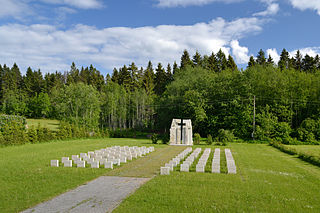 W
WParliamentary elections were held in Estonia between 27 and 29 November 1920, the first held under the 1920 constitution. 100 deputies were elected into the new Riigikogu by party lists in 10 regions, by which one party or electoral bloc could put up several lists in one region. Seats were still distributed on the state level, where votes for different lists were summed up by their political affiliation and then seats distributed using d'Hondt formula. Thereafter seats for one party or bloc were distributed between different lists of that political force using the same formula.
 W
WParliamentary elections were held in Estonia between 5 and 7 May 1923. There were some controversies - some lists, most remarkably Communist, were declared void before the elections because of electoral law violations, and the results gave Estonia its most fragmented parliament ever.
 W
WParliamentary elections were held in Estonia between 21 and 23 May 1932.
 W
WParliamentary elections were held in Estonia on 7 March 1999. The elections proved disastrous for the Estonian Coalition Party, which won only seven seats together with two of its smaller allies. The Estonian Country People's Union, which participated the election on its own list, obtained seven seats as well.
 W
WThe 2011 Population and Housing Census. was a census that was carried out during 31 December 2011 – 31 March 2012 in Estonia by Statistics Estonia.
 W
WLennuk is a painting by Nikolai Triik of 1910, depicting Lennuk, the ship of Kalevipoeg, son of Kaleva, from the Estonian national epic Kalevipoeg.
 W
WBattle of Porkuni was the largest engagement between Estonians serving in the Red Army and Estonian pro-independence and Waffen-SS units. It took place on 21 September 1944 between Lake Porkuni and the Sauvälja village about seven kilometres northeast of the town of Tamsalu during the Leningrad Front's Tallinn Offensive Operation.
 W
WEdgar Valter Saks was an Estonian amateur historian and author. He was Estonian exile government's minister of education in exile from 1971 until his death.